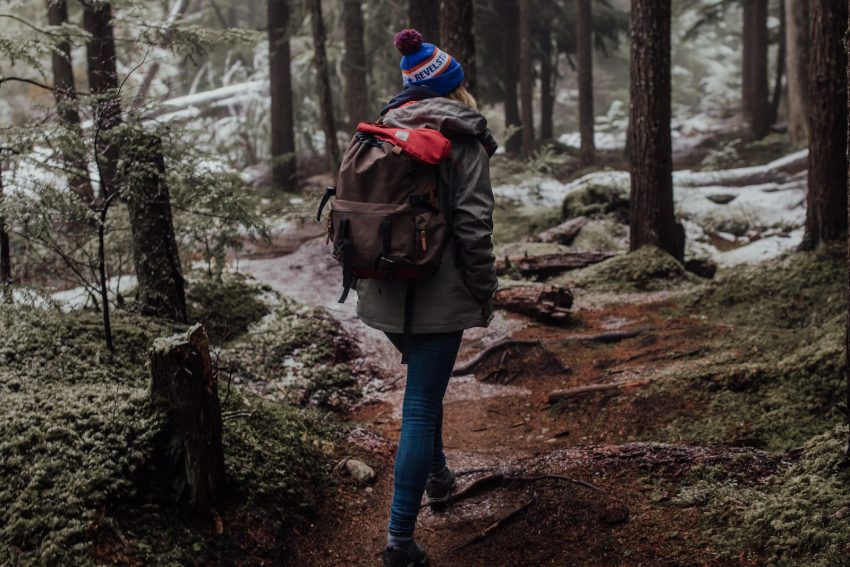Seven Winter Hiking Tips to Stay Safe and Comfortable

While most people think of hiking as an activity for the summer months, there’s no reason you can’t enjoy the great outdoors in winter. It does require some extra preparation and planning, however, and if you aren’t ready for all the elements winter hiking brings, you may be putting yourself at risk of injury or hypothermia. Avoid these potential problems by following these seven winter hiking tips from experienced hikers.
Waterproof Your Gear
Waterproofing is an added cost, but your gear can be ruined in seconds by an unexpected downpour. If you know you’ll be out for more than two hours in rainy weather, consider using a waterproof cover for your pack. Be sure to have a waterproof bag or container in which to keep any valuables that need extra protection. Many cell phones are also now being made with non-waterproof covers, so double-check that your device is both protected and charged before heading out into inclement weather. You may read more about it from casinoroar online casino.
Invest in Good Boots
The best way to keep your feet warm on a hike is to invest in good winter hiking boots. If you’re going on a longer hike, or live in an area with lots of snow, waterproof hiking boots are also worth considering. While many hiking boots do come with waterproofing built into them, it’s always best practice to consider water resistance when buying gear.
Wear Layers
Layering allows you to add or remove clothing depending on your body temperature. Wearing a base layer will help keep you warm when you start hiking, but adding or removing layers as necessary can save your skin from getting too cold if things get colder than expected. In addition to keeping you warmer, layering also helps reduce perspiration, which is especially important in winter weather. Be sure to wear synthetic fabrics (like polypropylene) over cotton—cotton retains moisture much more readily than synthetics do.
Watch for Falling Ice and Snow
It’s amazing how many people are injured or killed by falling ice or snow each winter. The best way to avoid injury is simple: Look up! If you see a block of ice falling from a building, get away from it immediately. Don’t take a chance just run! Falling ice and snow can cause serious injuries such as concussions, broken bones, lacerations, puncture wounds, internal bleeding, and even death. Always be aware of your surroundings when walking near buildings during cold weather months.
Check Weather Forecasts
Winter hiking isn’t for everyone. I personally love winter hiking, but it can be dangerous if you’re unprepared. Make sure you check your local weather forecast before heading out. You should also have a backup plan in case you need to turn back early or change your plans on short notice due to inclement weather. This is especially important if you’re going solo and even more so when temperatures drop below freezing. You may take advice from the best online casino games.
Don’t Go Alone Section: Always Carry a Map
Even if you’re sure you know where you’re going, always bring a map. If you do get lost, at least you have a point of reference. Even if it is just a napkin from your last meal, write down notes about how you got there so that when other hikers come across your body with an arrow drawn in blood on the rock behind them saying I came from here…, they will know what direction to go.



Leave a Reply
You must be logged in to post a comment.